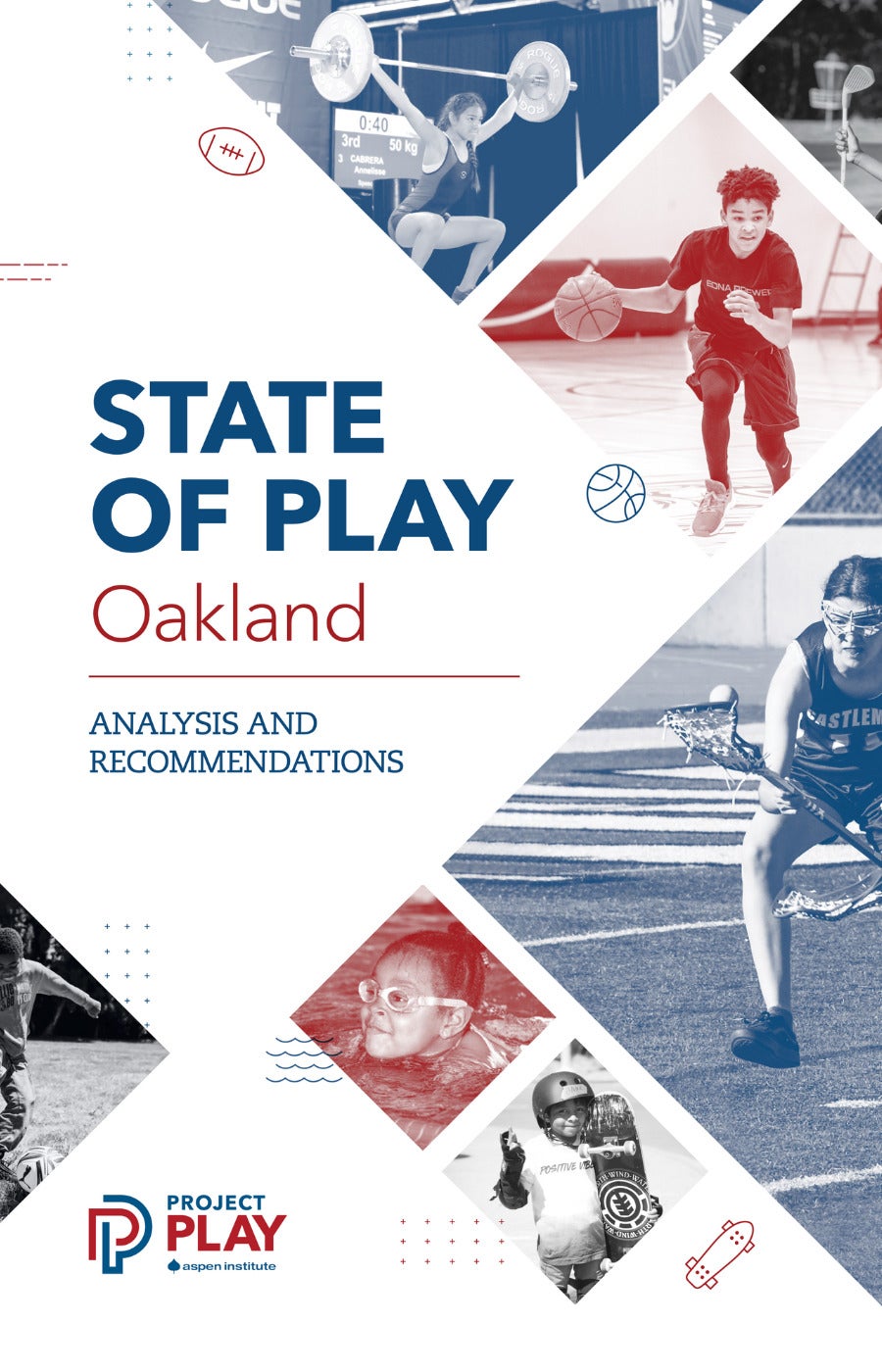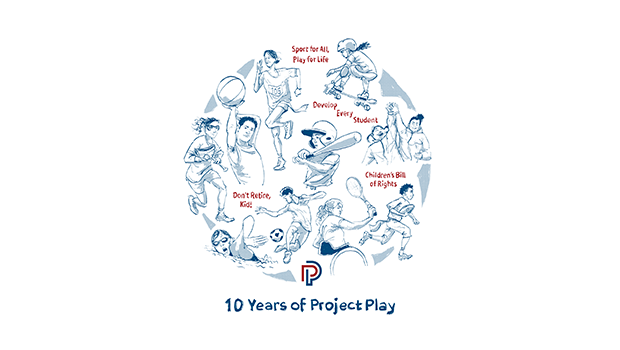The Aspen Institute Sports & Society Program analyzed the landscape of youth sports in Oakland, California. State of Play Oakland is the product of a one-year analysis in the city of Oakland, in partnership with Stephen and Ayesha Curry’s Eat. Learn. Play. Foundation. The Aspen Institute identified 40 findings and made recommendations based on the unique characteristics of Oakland through youth surveys; focus-group discussions with youth, coaches, and parents and caregivers; and analysis of Oakland’s youth sports ecosystem.
State of Play Oakland is the Aspen Institute’s 11th community report. Previous reports were produced on Seattle/King County, Washington and Mobile County, Alabama; a state report on Hawai’i; regional reports on Southeast Michigan, Western New York, Greater Rochester and the Finger Lakes, and Central Ohio; and local reports on Harlem, New York, Baltimore, Maryland, and Camden, New Jersey. Stakeholders in those communities have taken actions based on the recommendations and are seeing results.


